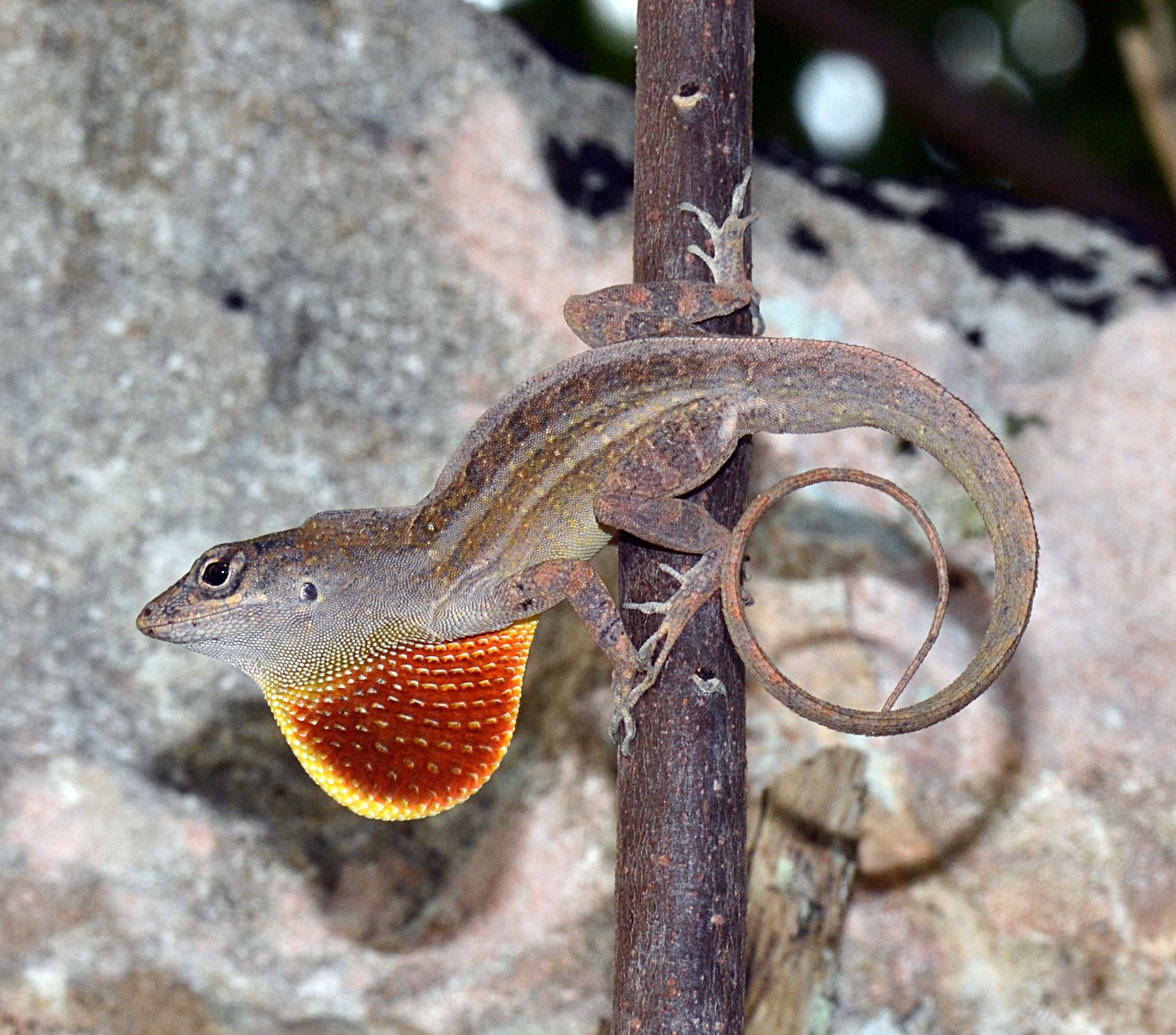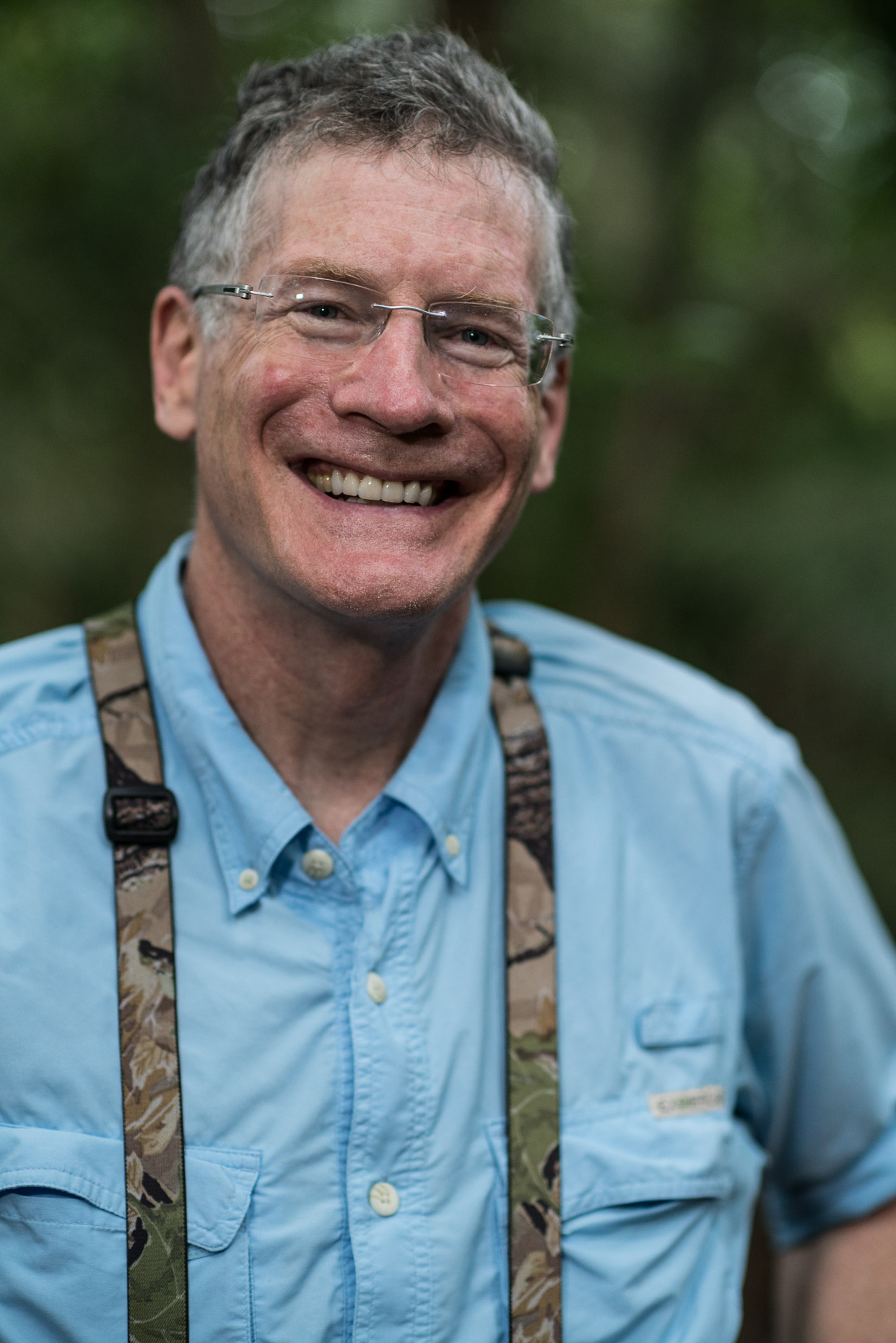Using Experiments in Nature to Study Evolution
Research on Lizard Island Adaptations in Real Time
Jonathan Losos
Director, Living Earth Collaborative
Danforth Distinguished University Professor
Washington University
In Memory of Marvin Hass
About the Lecture

Biologists used to think that evolution proceeded at a glacial pace, so slow that change could only be detected over the span of eons. We now know that this view is wrong. Quite the contrary, when environments change and natural selection pressures are strong, evolution can occur very quickly, rapidly enough to be detected over short periods. A corollary of this finding is that the experimental method, the gold standard of scientific research, can now be applied to test evolutionary hypotheses.
This lecture will describe a 30-year experimental evolution research program studying lizard adaptation to changing conditions in the Bahamas. The work is based on detailed studies of the evolution of the 400-species-rich lizard genus Anolis which has diversified throughout the Caribbean and Central and South America. Based on understanding of how species have adapted over thousands and millions of years, the speaker and colleagues designed experiments to test hypothesized drivers of evolutionary change.
They introduced lizards to small islands in the Bahamas. They then monitored evolutionary change of the populations. The species are native to the area and regularly colonize and become extinct on the small islands. The research was emulating a natural, ongoing process.
Despite the intervention of many hurricanes, the researchers documented that natural selection pressures can be intense and that, correspondingly, lizard populations evolve rapidly and in the predicted direction.
Selected Reading & Media References
Losos, J.B. (2009): Lizards in an Evolutionary Tree: Ecology and Adaptive Radiation of Anoles. University of California Press: Berkeley, CA.
Losos, J.B. (2007): Detective work in the West Indies: Integrating historical and experimental approaches to study island lizard evolution. BioScience 57: 585-597.
Losos, J. (2009): Darwin, lizards, and evolution. ReVista 8(3): 11-13.
Losos, J.B. (2011): Detective work in the West Indies: Integrating historical and experimental approaches to study the evolutionary diversification of island lizards. Pp. 73-92 in J.B. Losos, Ed., In the Light of Evolution: Essays from the Laboratory and Field. Roberts and Co.: Greenwood Village, CO. (revised version of 2007 Bioscience paper).
Losos, J.B. (2014): What Darwin Got Wrong. Chronicle of Higher Education, Jan. 24, pp. B13-B15.
About the Speaker

Jonathan Losos is the William H. Danforth Distinguished University Professor in the Department of Biology at Washington University. He also is the Director of the Living Earth Collaborative, a partnership between Washington University, the Saint Louis Zoo, and the Missouri Botanical Garden, with the mission of advancing knowledge of biodiversity to ensure the future of earth’s species in their many forms. Previously, Jonathan was Professor of Biology at Harvard University and Curator in Herpetology at the Harvard Museum of Comparative Zoology.
Jonathan’s is well known for his work as an evolutionary biologist, known particularly for his research on how lizards rapidly evolve to adapt to changing environments. He is an author on more than 240 papers, a leading college biology textbook, and two other books: “Improbable Destinies: Fate, Chance” and “The Future of Evolution.” He is working on a third book, due to be published next year: “The Cat’s Meow: How Cats Evolved from the Savanna to Your Sofa.”
Among many other honors and award Jonathan is an elected member of the National Academy of Sciences and a fellow of the American Academy of Arts & Sciences. He is also the recipient of the Theodosius Dobzhansky Prize of the Society for the Study of Evolution, the EO Wilson Naturalist Award of the American Society of Naturalists, the Elliot Medal of the National Academy of Sciences, the Distinguished Herpetologist Award of The Herpetologists’ League, and the Julia Ward Howe Prize for Non-Fiction of the Boston Author’s Club.
Jonathan earned an AB in Biology at Harvard University and a PhD in Zoology at UC Berkeley.
Minutes
On March 31st, 2023, from the Powell Auditorium of the Cosmos Club in Washington, D.C. and broadcast on the PSW Science YouTube channel, President Larry Millstein called the 2,475th meeting of the Society to order at 8:02 p.m. ET. He welcomed new members, and the recording secretary read the minutes of the previous meeting.
President Millstein then introduced the speaker for the evening, Jonathan Losos, Director of the Living Earth Collaborative at the Washington University. His lecture was titled, “Using Experiments in Nature to Study Evolution.”
The speaker began his talk on evolutionary biology by highlighting the experimental work of Charles Darwin. Although Darwin made significant contributions to science, Losos argued, he was wrong about certain things, such as the pace of evolution, which he thought was very slow. The speaker points out that we now know that evolutionary change can occur rapidly under certain conditions, as demonstrated by laboratory studies on fruit flies. Losos suggested that understanding the mechanisms that drive rapid evolution can help us address a range of issues, from antibiotic resistance to climate change.
Losos went on to discuss his experimental field studies of evolution in the Bahamas. The speaker specifically discussed his research on lizards in the genus Enolus and how they adapt to different environments.
His team noticed that on very small islands in the Bahamas, you did not find these lizards. The Shaners, who were conducting an experiment, introduced populations of these lizards to the small islands to watch them go extinct. However, the lizards did not go extinct, and this finding set the stage for further research on the evolution of leg length in the lizard species.
The speaker then discussed his research on adaptation to different environments, the role of intra-specific competition between species in driving evolution, the role of predation, and founder effects. The speaker acknowledges that this research was a collaborative effort with Tom Shaner, Dave Spiller, Manuel Leal, and Jason Colby.
Losos then described a set of studies looking at the effect of exercise on limb growth, where various animals such as mice, rats, and chickens were made to exercise and their limb characteristics were measured. The researcher conducted their own experiment with baby brown and holes lizards, growing them in two different situations, on broad and narrow surfaces, and found that the lizards that grew on the broad surface had longer legs than the ones on narrow surfaces. This demonstrates that there is a component of phenotypic plasticity of the limb length to how an organism grows.
Losos went on to discuss their experiment where they introduced lizards to small islands with a single male and female and observed their adaptation to the new environment. They found that the populations grew quickly, and inbreeding was not a problem. They also measured the genetic variation of the lizards and used x-ray machines to measure their legs, which was more accurate than measuring them by hand. The experiment showed that the founder effect theory holds true and that evolution can occur rapidly in new populations with a small number of individuals
Losos then concluded with an encore in which he briefly described the work that has been done in his lab by postdoctoral students.
Next the question and answer period began.
One member asked how many generations are being considered with these studies. Losos responded that there are approximately 2 generations per year and some of the studies occurred over an 11 year period, so generally there are 16-20 generations per study.
Another member asked if we have a better understanding of which characteristics are predominantly phenotypic plasticity versus those that are clearly genetic. The answer states that while phenotypic plasticity has become an important topic of research in the last 20 years, it is difficult to categorize traits as purely plastic or purely genetic because plasticity itself is a genetic phenomenon. Most traits exist on a spectrum between plasticity and genetic influence. However, modern genomic technology allows us to better understand the mechanisms of plasticity and how it interacts with genes. Therefore, Losos concluded, that while there are no discrete categories, so it is an exciting time for research on plasticity.
After the question and answer period, President Millstein thanked the speaker, made the usual housekeeping announcements, and invited guests to join the Society. President Millstein adjourned the meeting at 9:51 p.m.
Temperature in Washington, D.C.: 6° C
Weather: Cloudy
Attendance: 44 in the Powell Auditorium, and 24 via YouTube for a total in person attendance of 68. The number of online viewers in the first two weeks of posting was 226.
Respectfully submitted,
Cameo Lance, Recording Secretary